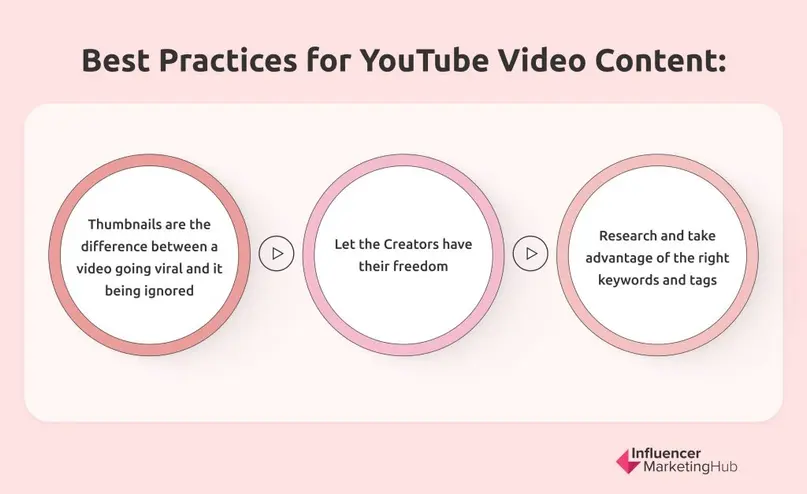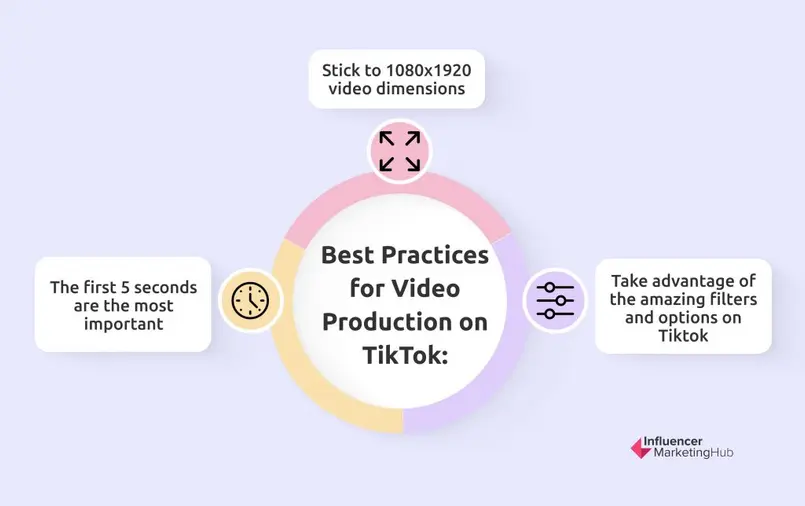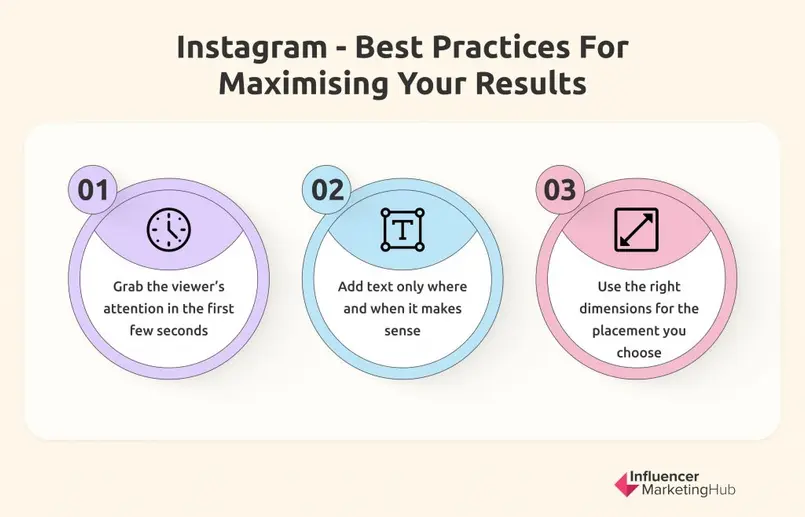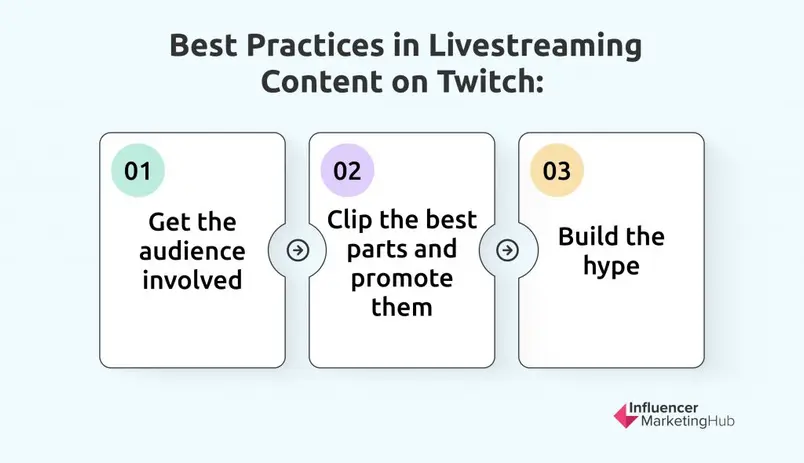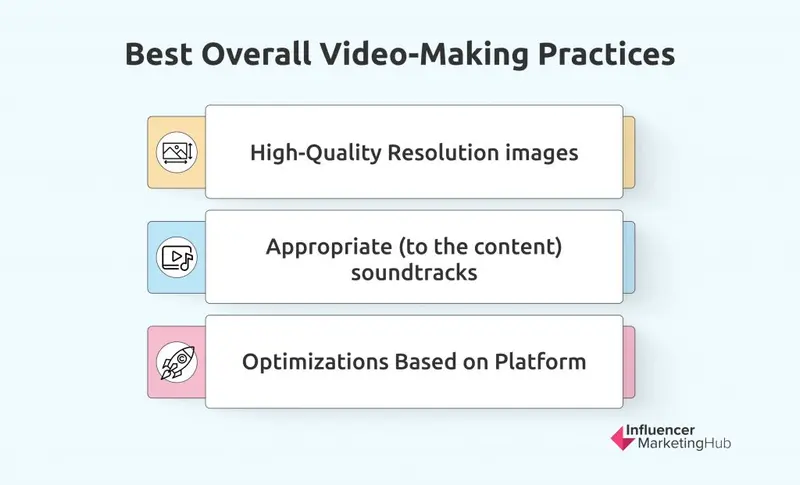Video has become an essential, amazing part of social media over the past decade. It’s truly incredible to see how far the industry has developed since the days of the best social content coming from Instagram photos and tweets. Now that all the major platforms are developing competing products to one another (Shorts, Reels, TikTok long-form videos), it’s important to research and understand not only which video platform is the best choice for an influencer campaign, but also what all goes in to creating a well-performing video asset.
It’s also important to look at livestreaming platforms versus the platforms focused on standard pre-recorded/edited video content. Livestreaming has absolutely exploded in certain industries and the live-time interaction aspect takes the “Engagements” metric to the next level.
Best Practices for Video Production in Influencer Marketing:
Best Platforms for Sponsored Video Content
YouTube
Let’s start off with the most obvious option. With over 2.5 Billion Active Users, YouTube’s the biggest site for long-form video content. There are 3 main areas that YouTube excels in:
- SEO purposes – Directly connected/owned by Google
YouTube is the world’s second largest search engine. Using the best meta tags for SEO purposes can be the difference between a successful campaign and one that gets left at the bottom of the indexing pit. There are tons of videos and articles that help with choosing the right meta tags and it’s worth taking some time to figure out what works best for you.
A huge part of the value of influencer marketing comes after a campaign is over. The content that's created is evergreen and making a YouTube video index at the top of common searches for terms around your product or service can provide sales and conversions years after a campaign is completed.
- Highest production quality
We touch on the benefits of influencers in terms of production quality a bit below, but YouTube’s monopoly over the long-form video market makes it the obvious choice for high production quality
It’s all about equipment, lighting, sound control, camera angles, and other factors that YouTube influencers build their careers on. You’re basically hiring a videographer with extra value added in terms of:
A whitelisted piece of content with a real person behind the message
A person who knows and has grown with the audience that the video will reach
A person who has proficient skills not only in the video quality, but sound, editing, and the other factors listed above that you’d usually have to build entire teams to accomplish.
Easiest to tell a story for brands that need to convey a lot of information about a product. Think Laptop brands that want to lay out all their specs.
Often, brands will utilize the wrong formats for getting information out on their product. Telling the story of your product in a way that’s easy to understand/pay attention to and in a way that’s informative is a fine line and takes a lot of balance.
A point to think about is that influencers are naturally amazing at this type of balance. They do this naturally across their channels, balancing out the story and brand identity that they’ve created for themselves. The shift between organic and sponsored messaging to keep people engaged, entertained and informed is essential for influencers to keep growing their channels, and make a living doing so.
It’s these points combined that make gen.video confident that YouTube is the highest sales-producing social channel.
With Creators across almost every vertical, YouTube can show success for almost any brand that’s interested in showing a presence.
For Shorts specifically, using this feature depends on what audience you’re trying to reach. Mostly, this format is better suited for TikTok or IG Reels for a few reasons:
- YouTube Shorts cannot be monetized
- Shorts count towards a channel’s overall metrics and will decrease average view length. Decreasing statistics like this is extremely undesirable especially for influencers that have their main presence on YouTube. Their media kits that advertise themselves for brand sponsorships showcase these data points, so influencers may charge relatively more for a Shorts campaign that risks damaging their view length metric.
- TikTok has a variety of filters, greenscreens, AR effects, etc. while Shorts is pretty limited in comparison in terms of platform tools. While these platforms are going to war with each other to try to steal market share, there will undoubtedly be developments that change this point. The question is, when is it considered to be “too little too late” to the point where it’ll be next to impossible to get users to switch platforms?
It’s these same reasons why we may even see Creators pushing back to brands that want to do Shorts to either switch to long-form videos or make the scope change to TikTok.
Best Practices for YouTube Video Content
- Thumbnails, thumbnails, thumbnails. It’s like ‘location’ in real estate. Thumbnails are often the difference between a video going viral and it being ignored. Jay Alto just made an interesting thread looking at Mr Beast’s past thumbnails which is extremely helpful.
- Make the content engaging and let the Creators have their freedom in how to get messaging out.It’s hard to keep a viewer’s attention for long periods of time, but Creators can see video view lengths for their past content and they know what works for them. Get your message out, but trust them to do it in the best way.
- Research and take advantage of the right keywords and tags to capitalize on the SEO portion mentioned above.
TikTok
Now officially over 1 Billion Active Users, TikTok has broken through and done what thousands of new social media apps try to do every year. Over 60% of the userbase is between 10-29, with around 32% in the 10-19 range. It’s important to know your audience and who will be seeing the content generated on the platform, but there is no doubt that it’s an amazing tool for marketers to leverage.
Contrary to YouTube’s content creation style, TikTok is mainly focused on “lower quality” real-life short videos. Not the option of choice for products that require a lot of explanation or a long rundown, but TikTok is an amazing platform for quick, funny, quirky videos that can do wonders for several CPG-type programs. Since the videos are easier to make, they’ll be cheaper on average compared to longer-form platforms and quantity can sometimes be the right option over quality depending on the campaign.
TikTok excels with brands that:
- Have a product that can be advertised in short, Creative ways
- Are in Fashion, Skincare, Gaming, Gym Wear, Food & Drink or similar spaces
- May be interested in boosting content with Spark Ads.
Including this point is extremely vital in terms of scalability in whitelisting. Currently, whitelisting on Meta/IG can be extremely difficult with the need to request advertiser access to promote under an influencer’s handle. Spark Ads solved this issue with an easy-to-use code that influencers send brands, making the process seamless.
Best Practices for Video on TikTok:
- For short-form content, the first 5 seconds are the most important in order to grab someone’s attention
- Stick to 1080x1920 video dimensions for the best audience experience
- TikTok has some of the most amazing filters and options for creating video content. Get creative and take advantage of them!
One thing that’s amazing about TT is the ease of disclosing content. Creators have access to TikTok’s Branded Content toggle option that allows influencers to prominently and seamlessly disclose a partnership. Anything that can make the campaign management process easier is celebrated across the board.
With built-in tools and assets to assist Creators (Creator Fund, #FYP), TikTok does an extraordinary job of re-investing in itself, its Creators and its advertisers.
Throughout the years, Instagram has still maintained its powerhouse position as one of the best, if not THE best option for Fashion, Beauty and Travel content.
Depending on the goal for your campaign, different placements will have varying strong suits. Here’s how the different placements excel. Keep in mind that with anything, developing an omnichannel or omni-placement strategy is beneficial to get your own data since results will vary by product and campaign.
-
Reels
Great for capturing attention since the content is shorter. Just keep the first 5 second rule in mind!
Editable in-app which makes it easier on Creators and can be used for faster turnaround programs.
Easier for audiences to see your content since Reels is separate from the main IG app.
-
In-feed Video
You’re in the meat and potatoes of the main app, so you have access to the widest portion of the IG userbase
Videos are evergreen and searching through past content is easy on IG
Offers the highest level of production value paired with the biggest audience
-
Stories
Stories are capped at 15 seconds per, but they can be bunched together in many interesting and fun ways to tell a story, as the name suggests.
If you have a multiple-frame story campaign, you have several chances to grab someone’s attention with the 5 second rule
You’re in-app so you have access to the widest portion of the IG userbase
-
IGTV
Can be up to 60 minutes long, so it’s the best placement on IG for longer-form content
Huge competitor in the video content space for informative or educational content
Although it has a smaller userbase than the IG app itself, Discoverability is easier since the audiences using it are specifically in the IGTV app
Instagram has a few different formats for video that can be used for different, creative purposes, but in general there are a few best practices to follow to maximize your results and get the best bang for your buck.
- Like TikTok, the first 5 seconds are vital in all of the IG video placement options. You need to grab the viewer’s attention and make them stay before they decide to scroll to the next video.
- Add text only where and when it makes sense. Too much text can be detrimental, but small bits of text can be used in some extremely creative ways that don’t necessarily work on other platforms.
- Use the right dimensions for the placement you choose. Different placements in IG take up different amounts of the screen. IMH has a fantastic article that runs through the specifics. Following guides like this is imperative to make sure audiences have the best quality experience.
Twitch
Livestreamed video content is a massive, ever-growing industry, proving that the industry is still evolving with options that go beyond what we know as the normalized social media assets.
While livestreaming has become commonplace across almost all video platforms, Twitch.tv has a stranglehold over the industry. YouTube and Facebook Live are close to each other for a distant second place, but Twitch is absolutely the ‘Coca-Cola’ or ‘Pepsi’ of the livestreaming world. This makes it an intriguing option for tech hardware and software, gaming, food & drink, and other industries to reach an audience that’s actively engaging with the content that they’re watching.
Twitch has several overlay tools and plugins that brands aren’t currently taking advantage of on an active basis that can open up entire new worlds of engagement opportunities. Viewers can type in a stream’s chat and influence events happening on screen. They then can earn rewards, points, giveaways, or whatever a brand can come up with to capitalize on the creativity doors that this platform specifically opens.
For best practices in livestreamed content on Twitch and other platforms, there are a few things to focus on and keep in mind:
- Get the audience involved
As said above, viewers can directly interact with streams. A prime example on Twitch specifically is when a channel ran a promotion where the audience ran through an entire game of a classic Pokémon game by inputting and voting on commands through the chat. There are so many unseen ways that brands and Creators can work together using features like this to put a creative, engaging spin on a sponsored program.
- Clip the best parts and promote them
Most of the livestream platforms allow you to ‘clip’ certain segments of a stream so audiences can send funny moments to their friends, post them on forums, or so Creators can make highlight reels. These are the moments that can cause a Creator to go viral. If your product is featured in a viral clip, it’s some of the most valuable Earned Media you can imagine.
- Build the hype
Although you can repurpose the VOD after a stream is over, most of the audience will be at the stream engaging in real time. Contrasting other video platforms where the video is created and promotion is done afterwards, most of the promotion pre-sponsorship happens days or weeks before the stream happens.
Note that you’re also still able to utilize CTA’s, links to buy or learn more, display ad space, pre/post/mid-roll ad space, and more of the usual advertising options if needed.
Best Overall Video-Making Practices - Generalized
There’s a reason that video has thrived with the newer generations. On Instagram specifically, videos receive 38% more engagement than photos. This is remarkable since IG was the OG in social media, making its breakthrough by users obsessing over photos. Social media is changing to capture a shorter attention span and to provide the maximum amount of stimulating content to grab the most users.
When thinking about best practices when making videos overall, it absolutely depends on the platform and what audience you’re looking for. In general, there are a few guidelines that are straightforward, and some that aren’t so much. For the straightforward part, videos perform best when they have:
-
High Quality Resolution
An important piece as to why influencers succeed in the first place. The best influencers treat their channels like a business and invest in themselves and buy better equipment to make more stunning imagery and videos.
Brands utilizing influencers can take advantage of this by essentially getting a top-tier videographer with the added bonuses of whitelisted influencer marketing content. It’s truly a combination that has proven to be successful as the influencer industry has skyrocketed.
-
Appropriate (to the content) soundtracks
Pairing music to video is one of those things that’s easy to be decent at, but incredibly difficult to master. This is of course highly dependent on the type of video being made, but in general a healthy mix of explanations of a product or service combined with an upbeat, easy-on-the-ears track during product showcases tends to work extremely well.
For example, using a laptop brand again, the laptop may have several parts and features to explain, but it can get tough for a listener if the video is just one long list of product points. Adding in a few seconds of pure soundtrack, showcasing the beauty of the product itself can work wonders.
-
Optimizations Based on Platform
Taking the platform guidelines above into account can only help when thinking about end results. Think about what you’re trying to accomplish, find the right influencers, and have them post on their bread-and-butter platforms that make sense.
That being said, Creators build their audiences in certain ways, and only they really know the best methods in video generation. The trick for a Creator/Brand relationship is to have as much Creative freedom in the content as possible, while at the same time telling the story of the product or service in a natural, clear way.
For more information on gen.video, sign up for a free demo here to speak with the team.

